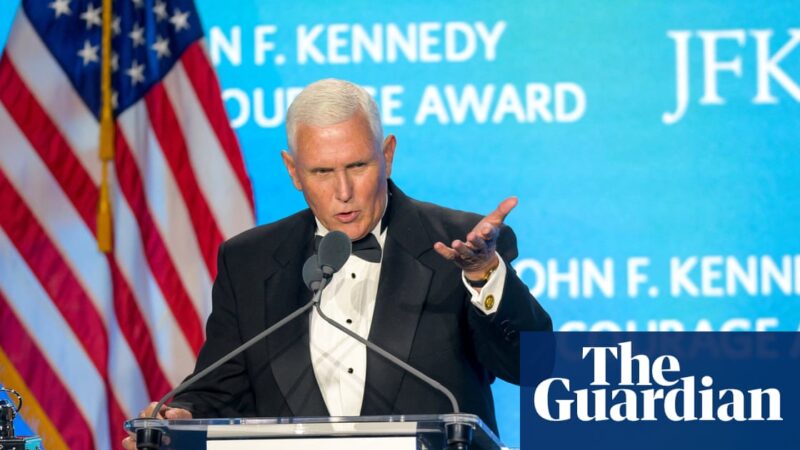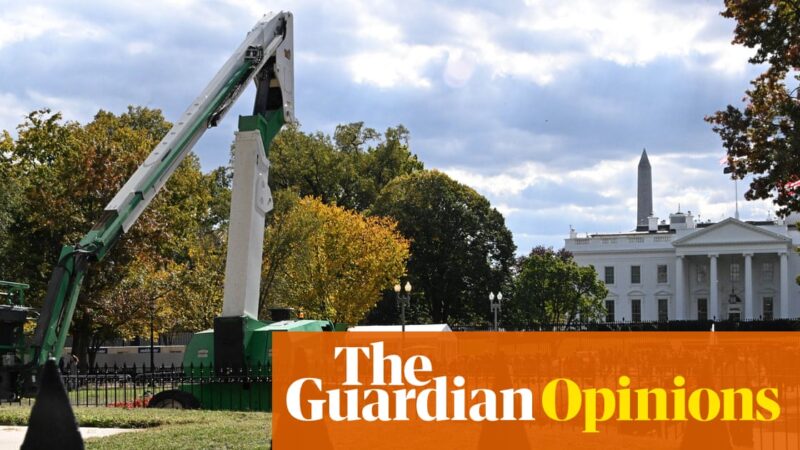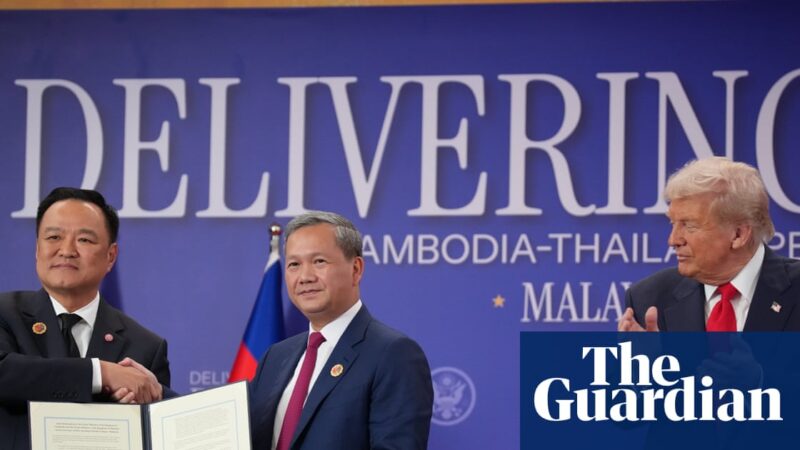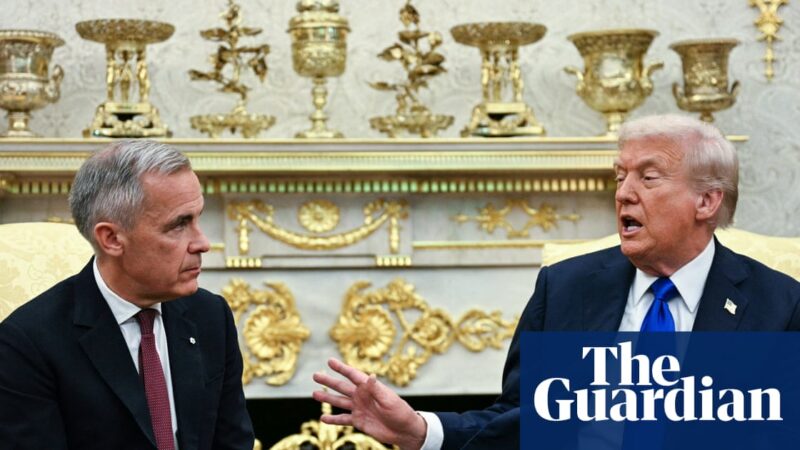Trump’s move to pay troops amid shutdown sets dangerous precedent, experts warn | US military
By ordering that US military personnel receive paychecks even though the government is shut down, Donald Trump is seeing to the needs of a politically untouchable constituency that has been caught up in the congressional logjam over federal spending.
But experts who spoke to the Guardian warn that he is doing so in a way that is almost certainly illegal and, if left unchecked, bodes ill for Congress’s constitutional authority to control government spending. Some fear it could set the stage for the president to unilaterally fund other contentious decisions in the future, such as the deployment of the military on US soil.
“I’m with the people who believe that there’s really no good legal justification for moving the money around in this way,” said Phil Wallach, a senior fellow at the right-leaning American Enterprise Institute who focuses on the separation of powers in the US government.
“There’s no congressional authorization for troop payment for this new fiscal year. So it’s going pretty far out on a legal limb, and just sort of daring anybody to do anything about it. Because, of course, substantially, nobody thinks it’s very bad to pay the troops.”
The federal government shut down at the start of October after Democrats and Republicans in Congress failed to agree on legislation to extend funding beyond the end of September. About 700,000 federal workers have been furloughed, while hundreds of thousands of others continue to report to work, but are not getting paychecks.
Troops were paid during previous government shutdowns because Congress had either approved defense department spending, or passed bills specifically to guarantee their salaries, said Bobby Kogan, a former White House office of management and budget official who is now with the Center for American Progress, a liberal thinktank.
Congress took neither of those actions this time, though lawmakers have unsuccessfully tried to get legislation addressing federal workers’ pay through Congress, as recently as this week.
Last week, Trump acted unilaterally, repurposing a reported $8bn in defense department funds meant for research and development to pay the military in the middle of October. Kogan called the decision “super duper duper illegal” under federal law.
“If you try to spend money you have on the wrong purpose, you’re in trouble. And if you try to spend money into a purpose that you don’t have money for that purpose, then you’re in trouble as well,” he said.
On Thursday, Trump said an unnamed “friend” had contributed $130m to pay service members during the shutdown. Sean Parnell, the chief spokesperson for the Pentagon, confirmed acceptance of the funds “under its general gift acceptance authority. The donation was made on the condition that it be used to offset the cost of Service members’ salaries and benefits.”
Christopher Mirasola, a law professor at the University of Houston, said that the civil servants who carried out Trump’s order to repurpose funds could theoretically be prosecuted for violating a law called the Antideficiency Act. But such prosecutions have never happened in the past, and he said in an interview he finds it difficult to believe Trump’s justice department, or even another president, would carry them out.
“I’m just not sure if a future administration would have the appetite to bring career government officials who at that point would have suffered years of abuse at the hands of the administration for complying with something even if they knew that it was illegal,” Mirasola said.
Trump foes who tried to sue over it – think Democratic lawmakers or civil society groups – may have trouble proving that they were harmed by paying the troops, a necessary component for bringing a case, Kogan said.
“You’re in tough places here to find standing under this supreme court, at least under the Trump administration,” he said.
The experts viewed Trump’s move to pay troops as his latest attempt to shift the power of the purse away from Congress and into the executive branch, but differed over how significant it was in the long term. Since taking office, he has used a variety of methods to halt government spending on areas his administration opposes, including a controversial pocket rescission of foreign aid funds.
“I think the crisis will start to feel more acute if we start seeing the president moving money around to do things that are very politically controversial,” said Wallach, noting that paying US armed forces is “something that basically everybody agrees on”.
The ball is now in the Republican-controlled Congress’s court to make clear that it is they who make the decisions about spending, Wallach said.
“I certainly don’t think among GOP appropriators, they’re like wanting to see the White House just take things over. I’m really quite certain that they’re distressed by this dynamic and want to get away from it as fast as they can,” he said.
Kogan warned that Trump was launching an offensive against Congress’s appropriations process, by which lawmakers, usually working in a bipartisan fashion, outline how much the government will spend, and on what.
“If the president can just completely ignore anything and everything, can spend money into existence, he can drain accounts and use them on whatever he wants, right?” Kogan said. “Like, what are we even doing there? That makes you an appropriations king.”
Such decisions may paradoxically make finding an agreement to reopen the government harder, by sapping the trust in Congress that any legislative deal Democrats sign on to will be honored by Trump.
“The whole point of the budget deal is to figure out how you’re going to allocate your limited resources. We are going to figure out what we want to prioritize in the government, and if the president has complete and unilateral authority to ignore every part of that deal, how can you ever do appropriations? How can you ever make a funding deal?” Kogan.
Mirasola connected the pay decision to Trump’s deployment of national guard troops into cities across the country, including Washington DC, Chicago and Portland. He views many of the federal laws that govern how the military may be used on US soil as outdated, and the main obstacle Trump faces is his ability to get Congress to pay for the soldiers.
“If my theory that appropriations are the most important limit on these domestic military deployments, if that’s true, then moves like this to edge Congress out of the appropriations process [are] really a strike at one of the most significant amendments on the president’s authority to use the military in the United States,” he said.





